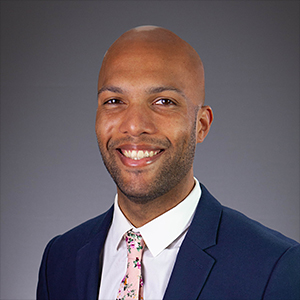
CLEVELAND – Faced with a federal lawsuit, Cuyahoga County has agreed to a proposed court judgment filed Friday that allows a Cleveland-area minister and wedding business owner to operate consistent with her belief that marriage is the union of a man and a woman.
In July, ADF attorneys filed suit on behalf of Kristi Stokes and her business, Covenant Weddings, to challenge a law that the county now agrees cannot be used to force her to use her ministry and business to officiate and compose homilies, vows, and prayers for same-sex weddings even as she continues to officiate and promote weddings between one man and one woman.
As part of the agreed-upon proposed judgment, the county will not enforce its law—which threatens fines of $1,000-$5,000 per violation, depending on their frequency—against Stokes or other ministers because Stokes’ business is not a place of public accommodation and because she and other ministers should not be forced to act contrary to her religious beliefs.
“No one should be forced to officiate ceremonies that conflict with their religious beliefs,” said ADF Legal Counsel Johannes Widmalm-Delphonse. “Cuyahoga County’s law made Kristi face an impossible choice: disobey the law, defy her own faith, or ditch her business. She no longer faces that choice. No matter one’s views on marriage, we all lose when the government can force citizens to participate in religious ceremonies they oppose, speak messages they disagree with, and stay silent about beliefs they hold dear. We commend Cuyahoga County for understanding and respecting this essential American freedom and acting quickly to ensure that Kristi and countless others need not fear punishment for merely living and speaking consistent with their conscience.”
ADF attorneys and attorneys for the county jointly filed their notice and proposed judgment in the case, Covenant Weddings v. Cuyahoga County, with the U.S. District Court for the Northern District of Ohio.
The judgment, which the court must approve, states that the county agrees not to compel Stokes and her business “to offer officiating and writing services against their sincerely held religious beliefs for the following reasons: 1. Neither Kristi Stokes nor Covenant Weddings currently qualify as a ‘place of public accommodation,’ as defined by [county law], because they do not have a physical storefront from which they provide goods or services in Cuyahoga County, Ohio. 2. Even if [their] services could be considered a place of public accommodation, the Accommodations Clause does not mandate or force Kristi Stokes, or any other minister, to officiate or solemnize weddings against their sincerely held religious beliefs. 3. Even if [their] services could be considered a place of public accommodation, the ‘Accommodations Clause’ does not mandate or force Kristi Stokes or Covenant Weddings to author specific prayers, homilies, vows, or other writings that are inconsistent with their sincerely held religious beliefs.”
Last year, in other ADF cases, the U.S. Court of Appeals for the 8th Circuit and the Arizona Supreme Court ruled in favor of filmmakers and artists who brought similar challenges against laws like Cuyahoga County’s.
- Pronunciation guide: Cuyahoga (Kai-ah-HAW’-gah)
Alliance Defending Freedom is an alliance-building, non-profit legal organization that advocates for the right of people to freely live out their faith.
# # # | Ref. 71237

